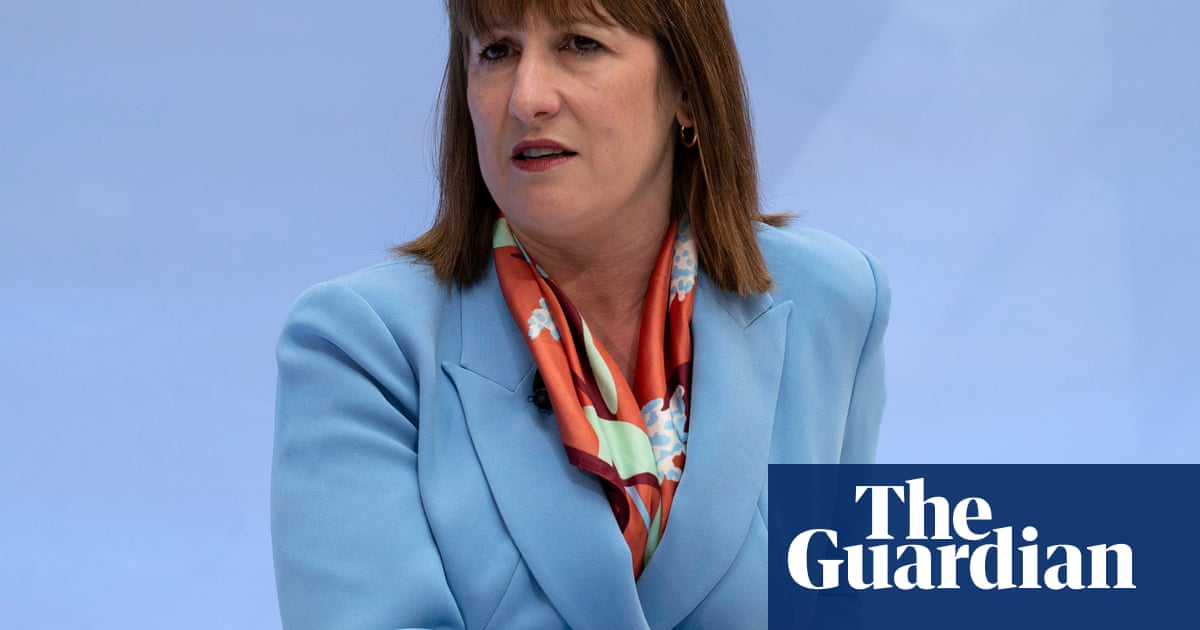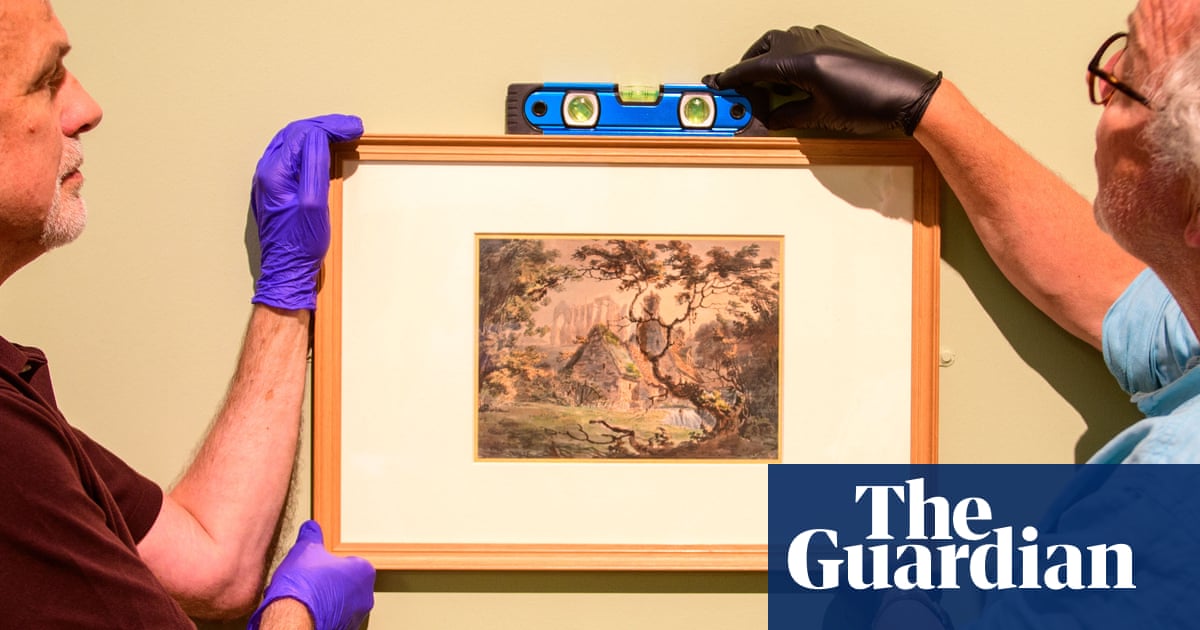When Savannah Blake joined the air force at 22 years old, she was looking for stable employment and a way out of poverty. For the last few years of her service, she worked as a cyberdefense operator in the intelligence squadron. But the work, which involved overseeing computers operating drone surveillance, eventually took a toll on her mental health.
“If I had to watch any more of this, I was going to not be alive anymore,” Blake said, who says she experienced suicidal ideations. “I just felt like the bad guy. I felt evil.”

After seven years of service, Blake, who is trans, left the air force with PTSD, generalized anxiety disorder and chronic depression. But she also left with the hope she could finally live as herself without fear of harassment from fellow service members. Last year, she began receiving estrogen through the Department of Veterans Affairs. Now she fears for the future of that care.
“Every day, I wake up and I don’t know what the rules are anymore in the country I live in,” said Blake. “It’s becoming increasingly hard to see a future where we’re OK.”
Blake is one of about 134,000 transgender veterans living in the US. It’s an alarming time to be someone like her. On his first day in office, Donald Trump issued an executive order recognizing only two sexes, stamping out gender identity in federal documents and public spaces. A series of other orders have attempted to restrict trans rights, including participation in sports, access to gender-affirming care for youth, educational materials in schools and military service.
The crackdown has sent shock waves through the VA, which functions as one of the US’s largest healthcare providers, offering free or low-cost care to more than 9 million veterans. After Trump’s inauguration, some VA health centers began removing LGBTQ+ affiliated objects, including pride flags, rainbow magnets, stickers and posters.
When Mary Brinkmeyer’s medical center ordered the removal of LGBTQ+ patient flyers and other affirming material days after Trump’s executive orders, she refused, and ultimately resigned. For nearly three years, she had worked as a psychologist and LGBTQ+ veteran care coordinator at the VA facility in Hampton, Virginia. Hospital leadership ordered her to stop LGBTQ+ outreach, advocacy and gender-affirming training to departments because it could be considered “gender ideology”.

“We all have ethics codes in our professions that say that you’re supposed to do no harm, and that if you’re caught between institutional pressure and the ethics code, you’re supposed to resolve it in a way that’s consistent with the ethics code,” Brinkmeyer said.
Brinkmeyer fears for the mental health of trans veterans, whom she saw experience “really intense suicidal crises” after Trump announced a ban on trans people enlisting in the military in 2017. After the election last November, some of her patients requested the removal of trans identifiers in medical records, and others withdrew from coverage over fears of being targeted and losing access to care. For many, those fears have become a reality.
Rollbacks became official in March when the VA rescinded directive 1341, a policy that ensured “the respectful delivery of health care to transgender and intersex Veterans”, and announced the phasing out of gender-affirming medical care. The agency had been providing gender-affirming treatment including hormone therapy, prosthetics, hair removal, voice coaching and pre-surgical evaluation including letters of support for more than a decade. While cisgender veterans will still be able to access these treatments, veterans diagnosed with gender dysphoria are now excluded. Mental health services for trans patients and existing VA and military coverage for hormone therapy won’t be affected, according to the memo, which also formalizes banning trans patients from using facilities that align with their gender identity.

“I am scared for the huge amount of people that are about to be forcibly separated, because the VA is not there to actually catch these people,” Blake said, referring to an influx of trans service members who could be forced out of the military under Trump’s transgender military ban. “I hate that the ladder was pulled up behind me.”
‘A death sentence’
The changes have put trans veterans seeking gender-affirming care in limbo. It has also created a climate of fear for the trans veterans already receiving hormone therapy, who worry it could be pulled at any time.

That’s the reality for Kaydi Rogers. While at the moment her hormone therapy will not be disrupted, she is terrified of losing access to estrogen if the VA continues its crackdown.
Rogers spent about five decades acquiring estrogen pills through pharmacies in Mexico or friends with prescriptions.
“I was desperate,” Rogers said. “I didn’t know any way of doing anything about what was going on with me. It was not a common thing back in the 70s and 80s to come out trans.”
She finally switched to VA coverage because of the potential health risks of taking unregulated pills. But Rogers said if the VA ever stopped prescribing her estrogen, the desperation would return and she would again rely on self-medication for survival.
Beyond her concerns about continued access to care, Rogers feels the loss of welcoming and safe spaces inside VA clinics. She says she tries to avoid drawing attention to herself during appointments, fearful of being harassed or attacked.
“Before last year, every time I went to the VA, I went dressed as Kaydi and no one seemed to bother me or care,” Rogers said. “Now, not so much.”
Other veterans share these safety concerns, including Lindsay Church, the executive director and co-founder of Minority Veterans of America. Church, who is non-binary and uses they/them pronouns, has experienced harassment and discrimination inside VA clinics in the past, and began carrying a printed copy of directive 1341 to prove they were entitled to treatment that respected their gender identity. With that directive rescinded and no guarantee of protection, they’ve canceled VA appointments and sought care elsewhere.

The veterans affairs secretary, Doug Collins, stated that trans veterans “will always be welcome at VA and will always receive the benefits and services they’ve earned under the law”. In response to questions about the new policy, the VA press secretary, Peter Kasperowicz, directed the Guardian to the press release from 17 March.
Church said the discriminatory climate is having a chilling effect on trans veterans, regardless of whether their care plans have been discontinued under the VA’s new policy. “If I can’t use [my healthcare plan] because I’m scared of being harassed and intimidated, and experiencing physical violence in a bathroom, I can’t use the system,” they said.
They called the policy reversal a “death sentence”.

‘We tell them we will take care of you, and that’s a lie’
Trans veterans face higher rates of homelessness, unemployment, PTSD and military sexual trauma compared with cisgender veterans. They are also twice as likely to die by suicide compared with cisgender veterans, and almost six times more likely than the general US population. Advocates and providers say these psychiatric and socioeconomic risk factors, when combined with the loss of an affirming medical environment, places an already vulnerable population even more at risk.
One VA clinical social worker, who requested anonymity, said his LGBTQ+ patients don’t feel safe and are experiencing more suicidal ideations than before Trump took office.
“I have seen an increase in suicide risk evaluations,” he said. “I’ve done more of those in the last two months than I’ve done the last two years.”

Another LGBTQ+ veteran care coordinator said a trans patient attempted suicide at her facility after Trump’s inauguration, and she fears there could be more people who attempt the same. She said notifying trans patients of the policy change has been heartbreaking.
“I’ve worked for the past two and a half years to gain people’s trust, and now all of a sudden, I’m pulling out the rug from under them,” she said. “It feels terrible.”
She had to tell one patient wanting to start hormone therapy that the VA could no longer help them, and is preparing the same message for trans patients on a months-long waitlist to begin treatment. While she has been looking for ways to provide alternatives, many of her trans patients live in rural areas where accessing gender-affirming care is difficult.
Other VA employees see cutting trans healthcare as a betrayal of the benefits promised to service members when they enlist.
“We’re asking these 17-year-olds to give their entire bodies to the US government,” said one VA nurse, who requested anonymity over fear of losing her job. “And they’re given one promise, which is that we will care for them. And this is part of care, whether you like it or not.”
Gender-affirming medical care has been endorsed by every major medical association in the US, and medical providers say that politicians shouldn’t be allowed to decide how they care for their patients.
“You’re giving so much to the military. You give your whole life, you have no say over where you live,” the nurse said. “Then we tell them we will take care of you, and that’s a lie. We’re lying to people – and not just trans veterans, all veterans.”

.png) 1 month ago
23
1 month ago
23

















































